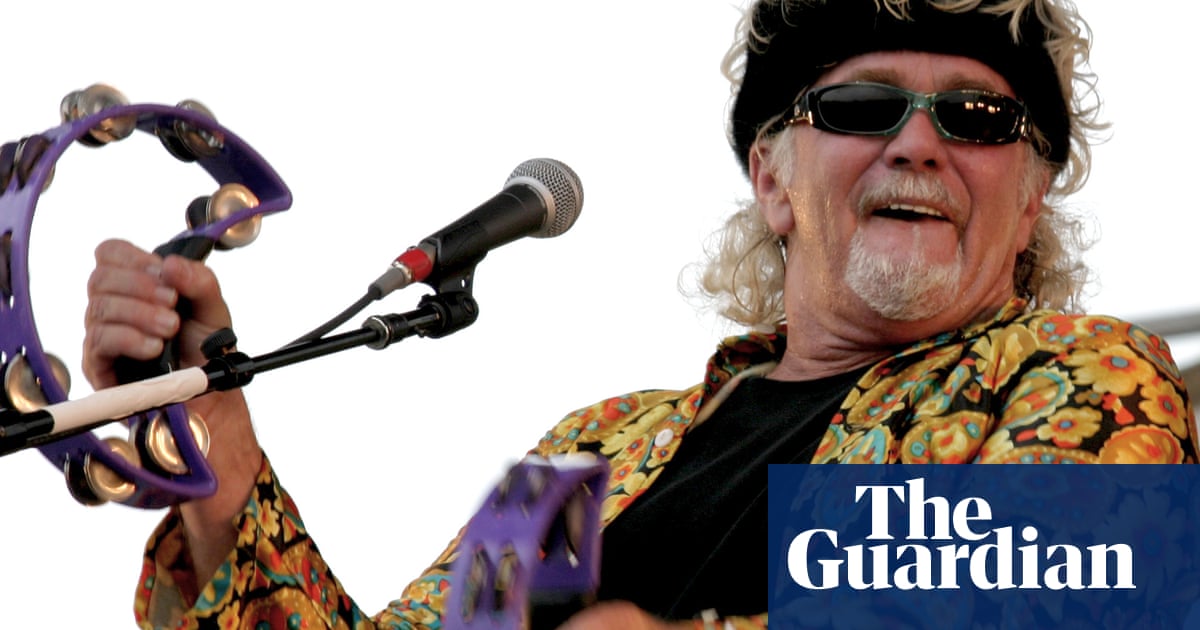James Lowe, the singer of psychedelic rock band the Electric Prunes, has died aged 82. His family said in a statement that he died of natural causes.
“Dad leaves behind a legacy of sound, love and boundless creativity,” they said on Facebook. “At the centre of it all was our amazing mom, Pamela – his guiding star, enduring muse and wife of 62 years. We know how deeply he cherished this community, and we feel that love too.”
Formed in Los Angeles in 1965, the band’s second single, 1966’s I Had Too Much to Dream (Last Night), reached No 11 in the US, and proved their biggest hit. (Most of their hits were written by Annette Tucker and Nancie Mantz.) More significant, perhaps, was the song’s inclusion on the 1972 psych and garage compilation Nuggets, a cult favourite for more than 50 years, and their general influence over the emerging psychedelic scene. Lowe said that the band wanted to make “free-form garage music”.
The band’s name started as a joke and they had a short-lived, tumultuous existence, with Lowe later admitting that they were learning to play their instruments as they went along, with one significant early woodshedding session taking place at the house of Leon Russell. Members came and went, a David Axelrod-produced album of psychedelic pop and Gregorian music flopped and inspired a disastrous live performance, and producer and engineer Dave Hassinger’s rights to the name allowed him to reassemble the band at will. Lowe left in 1968. The so-called New Improved Electric Prunes released their last album, Just Good Old Rock and Roll, in 1969 and split a year later.
Lowe distanced himself from the band until interest resurged in the 1990s and he began touring and recording with other members of the group. The song Kyrie Eleison, from the Gregorian-inspired album Mass in F Minor, had been used in the 1969 film Easy Rider and part of the album were later sampled by the likes of MF Doom and Madlib. At the time of his death, he was the last surviving original member.
Lowe was born in San Luis Obispo, California, on 5 March 1943 and lived in Hawaii for a time as a teenager. When he returned to California, he performed folk music and worked in rocket engine production before forming the Sanctions, the band that evolved into the Electric Prunes.
After the band’s split, Lowe worked as a recording engineer, contributing to significant works such as all three albums by Todd Rundgren’s band Nazz and the first album by the band that would become Sparks, then known as Halfnelson. That record flopped, prompting Lowe to leave music to work in television production.
In 2000,he told US author Richie Unterbergerthat the band’s reunion had reminded him “how much fun music is. Take away the profit motive and all that greed and you get back to trying to make a good record … it’s very hard.” Of the Electric Prunes’ brief existence, he said: “Some things are meant to be short and sweet. Life is but a dream.”
